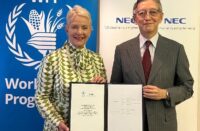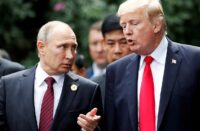 By Peter OBIORA InvestAdvocate
By Peter OBIORA InvestAdvocate
Lagos (INVESTADVOCATE)-The International Monetary Fund (IMF) Friday projected the growth of Mali’s real Gross Domestic Product (GDP) to grow by 6.6 percent (6.6%) in 2014.
This is coming on the heels of the first visit of Christine Lagarde, the Managing Director (MD) of the Fund to that country.
According to her, the real GDP growth of 6.6% will be supported by the rebound in agricultural output, recovery in the service sector, and the restarting of construction projects.
However, Lagarde affirmed that at the same time, formidable challenges remain. ‘’In addition to the key issue of dealing with reconciliation, Mali needs to ensure macroeconomic stability. Unlocking Mali’s economic potential will require large investments, both in the public and private sector, and a policy agenda with a clear focus on inclusive growth,’’ she said.
Lagarde further affirmed that action is needed on three (3) fronts. First, is to step up public investment which will hinge on the ability to mobilize more revenues and better use of existing resources, including through the gradual reduction of energy subsidies.
‘’This also requires improving governance and public financial management reforms,’’ she said.
Second, is strengthening the business environment and promoting financial sector development necessary to catalyze private sector activity and investment.
Third, she advised the Malian authorities to ensure the benefits of growth are broadly shared, both across sectors and across gender.
“I am deeply impressed by all that I have seen and heard during my visit—especially the determination of all stakeholders to lay the foundations for robust and inclusive growth and win the fight against poverty. The IMF will continue to support these efforts—including through our recently approved loan of CFAF 23 billion ($46 million), the IMF Boss said.
Lagarde praised the Malian authorities who have skillfully managed their economy in difficult circumstances. ‘’The government’s fiscal prudence has helped maintain broad economic stability during the transition. Consequently, the economy is on the mend and donor assistance and business confidence are gradually returning,’’ she said.






